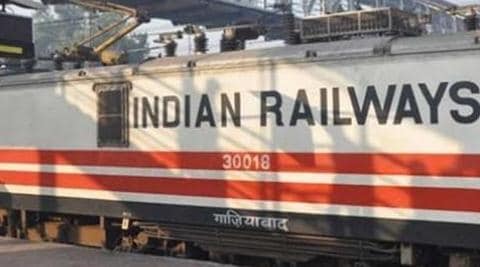R N Misra
Speaking at a conference on accounting reforms in Railways organised by The Confederation of Indian Industry (CII) on December 20, the finance minister Arun Jaitley said that the Railways’ accounting system must reveal more instead of concealing the reality. He added that accounting process must be reformed to present a true picture of its finances.
Though Railways is conducting a pilot project of accrual accounting at the Ajmer Division, it seems to be in hurry to conduct a full-scale before addressing the issues, doubts and inconveniences which surround it. This quick migration may land Indian Railways (IR) in an area where the mirage of hope for revenues and the fear of false statement of expenses would dominate its business activities, delaying decision-making, bringing down effectiveness and even stagnation to its economy.
The finance and budgeting process of IR has been a subject of great experiments, in-depth studies, and critical evaluation by several committees and reports which wanted to convert it to a company format, as well as restructure finances, as a panacea. It was argued that there was a need for recasting the accounts, for the purpose of bringing them into structural framework of a corporate system.
Unfortunately, the earliest exercise, conducted by Rangaraju and Associates by restructuring the Railways’ balance sheet as a model of recasting the accounts on behalf of the Expert Group, was in vain. This did not work as it showed strong inclination to corporatise the railways. However, if one studies the matter deeply, she will find that the accounting system of the Railways is in conformity with its status as a public sector and the financial allegations made—that the items, heads, or entries are not very clear or satisfactory from investors’ or stakeholders’ point of view—are ill-founded. Perhaps, critics fail to understand the very nature of the Railways and harp on those financial and accounting activities which are the hallmark of a corporation. The latest critique of Railways financial accounting has been presented by the NITI Aayog and elaborated by the Debroy Committee report when it provided a framework of reforms including costing, maintaining accounts of business activities and services. The committee recommended responsive and transparent accounting as a first step towards commercially viability of the Railways. It also recommended a ‘monitoring agency’, supported by an outside body, to regulate the railway system. And also, a time period of two years has been fixed as an outer limit to bring reforms.
IR should remain a public sector concern, but perform practically the activities of a corporate system. This is the basic intention of the committee—to avoid denationalisation—and yet have the advantage of a liberalised Railways economy. It is like putting a square peg in a round hole. But, will this work as smoothly as envisaged?
Indian Railways runs on the basic operating principle of engineering and a ‘broad system’ of commercial activities of transportation. To acknowledge its one aspect and neglect the other would jeopardise the institution. It is an integrated system where both activities work together, balancing each other, and only insiders can make it run. The operating process forms the core business of the Railways; all other activities like management, commerce, and administration come later, forming subsidiary functions. When minute principles of budgeting, book-keeping and accounting overrule the system, and compel it to conform to a more popular, business line, it creates disturbing ways for the Railways to adopt and comply. It can damage the system altogether without any gain. The initial laying and running cost (without commercial activities) in Railways are so heavy that no venture capitalist would come to invest unless an assured opportunity of ‘earning on government expenses’ is allowed to her.
The process of a Railways cost analysis is based on sound financial principles, and there is little to justify the contention that it is outdated and has not changed with times. The Railways accounts are maintained on the basis of financial system and the changes have taken place according to Railways conventions held from time to time. Moreover, it follows the most modern methodology of cost-analysis and the costing module is based on fully distributed costs. Desirable changes and improvements are always possible if suggested as per the requirements of various stakeholders, companies and consultants within IR.
The Railways stands as a government body—quite open, intact and strong on its own merits and manages to meet expenses through its earnings and, in all fairness, with gross budgetary support. Migrating to accrual accounting would not necessarily speak the final truth.
Corporates do accrual accounting because they are answerable to themselves. The IR as a public sector has to justify its misadventure and linked losses to the people in general and Parliament in particular. The cash-back process is activated when the money is in hand. It looks into bank balance and understands the exact resources at its disposal. Nevertheless, in some areas, Railways is following cash-based accounting through the use of linked accounts known as suspense heads, which meets the requirement of accrual system and those who are enamoured of only-accrual may find some solace in it. The fact is that both the systems have their limitations and there is nothing novel in the process of this migration. The situation would remain the same as far as revenue is concerned. Instead, what is needed are efforts to increase the volume of traffic which is the Railways’ core activity to enhance revenue.
The author is a retired professor and commentator on the Railways


